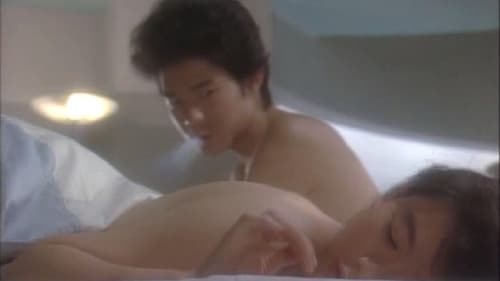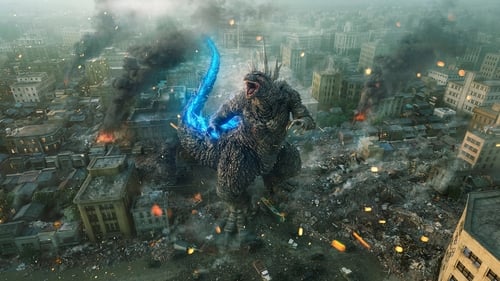
Kenji Noda
En el Japón de la posguerra surge un nuevo terror. ¿Podrán sobrevivir las personas devastadas... y mucho menos defenderse?
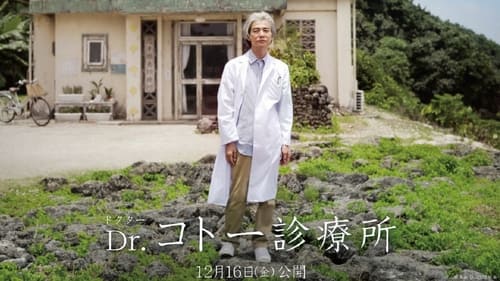
Kensuke Goto
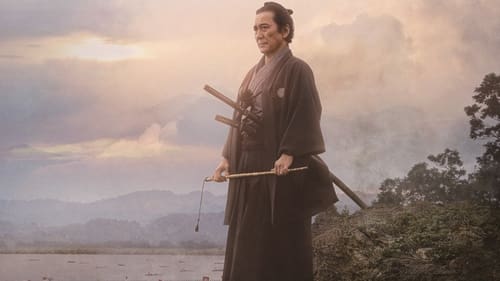
The last year of Ryotaro Shiba's life, as he tried to achieve peace and independence without joining the armies of East and West.
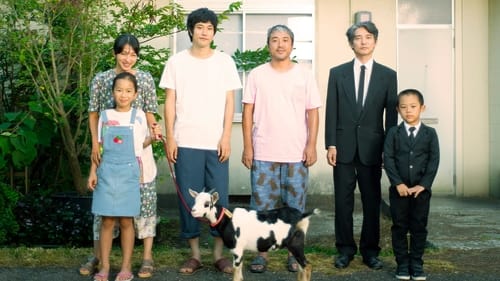
Kenichi Mizoguchi
A lonely young man moves in a 50-year-old apartment building. When he meets the cheerful residents, he finds himself surrounded by small happiness.
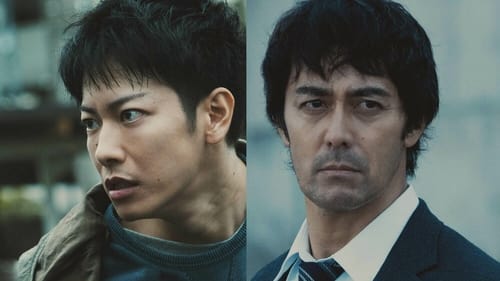
Kamisaki
Baffling serial killings unfold in which the victims are tied up and left to starve. Tone was just released from prison after finishing his sentence for another crime, and he surfaces as a suspect but detective Tomashiro can't nail down conclusive proof.

Matsuki Shizuo
Komari Sano's parents ran a small Tokyo factory that manufactured aircraft parts. With her parents' influence, Komari Sano dreamed of becoming a pilot. During World War II, her older brother died as a kamikaze pilot and her parents died during the bombing of Tokyo. Komari Sano became an orphan and lived with her aunt. Her aunt ran a ryotei (high end traditional restaurant). After the war, all aerial activities were initially banned in Japan. After long negotiations with the Supreme Commander of the Allied Powers, Sizuo Matsuki, who is the security chief of Civil Aviation Bureau, finally launched Japan's civil aviation. Komari Sano applies for the position of a cabin attendant.
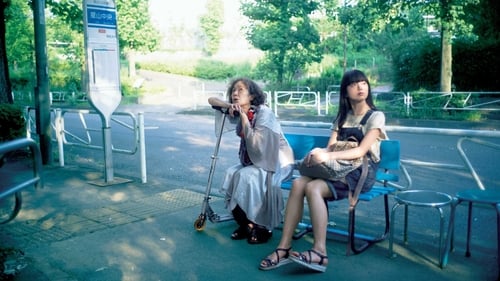
Toshio Oishi
14 year-old schoolgirl Tsubame is into university student Toru. She sees him in her area and really wants to be his. She struggles with how to inform him of her love. Then her stepmother becomes pregnant and she is distracted with that development. The one reliable part of her life is the calligraphy class she attends, but then she runs into a woman.
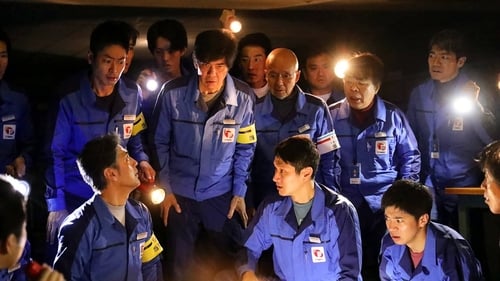
Takumi Maeda
Los trabajadores de las instalaciones de Fukushima Daiichi en Japón arriesgan su vida a diario permaneciendo en la central nuclear para evitar su desintegración total después de que la región haya sido totalmente devastada por un terremoto y un posterior tsunami en 2011.
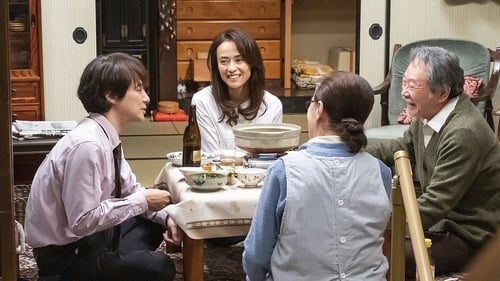
Mitsuo (Sakura's son)
The 50th film in Tora-san series, using the old footages and newly shot scenes to celebrate the 50th anniversary of the series. The adult Mitsuo, Tora-san’s nephew, who runs into Izumi, his first love, whom he had once promised to marry. The familiar faces of Kurumaya Cafe, which Tora-san’s family ran in Shibamata, also return. Catching up with old friends, it is always their dearest memories of Tora-san which everyone shares on such occasions…
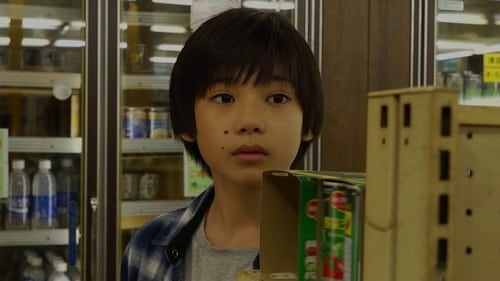
Sakurou Takano
The film is about poor children and 'The Kids' Diner', a place where they can go to get free or cheap food.
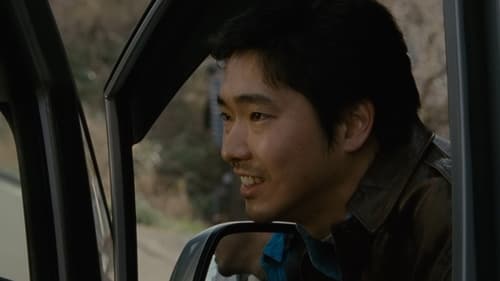
Mitsuo Yamagata
Three childhood friends reunite over a murder case.

Kinoshita Hideo
here is a small old-fashioned shop called ‘Fuji Family’ at the foot of Mt Fuji that is a convenience store in name only. It is run by three sisters who are known for their beauty. Dependable Oguni Takako (Yakushimaru Hiroko) is the eldest sister, free-spirited Nasumi (Koizumi Kyoko), the second sister, is the complete opposite of Takako in both personality and lifestyle, and tactful Tsukimi (Mimura) is the youngest sister. Although Nasumi lived and got married in Tokyo, she abruptly came back with her husband Kinoshita Hideo (Yoshioka Hidetaka), but died suddenly of illness eight years ago. Takako finally wed Haruta Masao (Takahashi Katsumi), with whom she has had an enduring but difficult relationship, this year. The newlyweds now live in an apartment nearby but Takako constantly comes to ‘Fuji Family’.
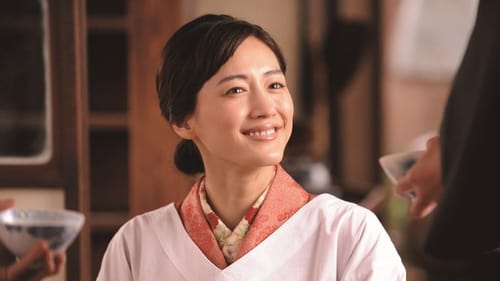
Tadashi Shinonome
In a time when the main source of energy was still coal, there was a man who saw the future in oil. Young Tetsuzo Kunioka who hails from Moji, Kitakyushu, rides out into the oil business, but is faced with numerous challenges and competitors who stand in his way, including domestic suppliers and major western oil companies, or the "oil majors". But Tetsuzo never gave up, however despairing the situation was. He always found a way and paved a new road with his unconventional ideas, eccentric actions, and most of all, his caring heart toward his own men. That style of Tetsuzo's was not something that would ever change, even when the tides were against him in a war-lost Japan.
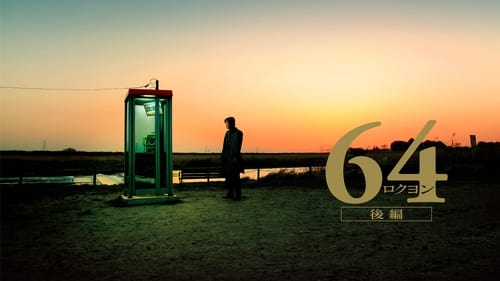
Kazuki Kota
1989 is the 64 Shouwa year in the Japanese calendar, thus the unsolved girl kidnapping-murder case is called "64(rokuyon)" that got up in this year in Criminal Investigation Department in the Prefectural Police Department. And 14 years were over as the prefecture's police to be unsolved greatest stain, and statute of limitations approached it. In 2002, Yoshinobu Mikami, an ex-detective who was assigned as the investigator of the "Rokuyon" case 14years ago, moves as a Public Relations Officer in the Police Affairs Department against his will. As a newly assigned Public Relations Officer, he was troubled with the relation between the reporters, new case has occurred. And that new case traced "Rokuyon" case exactly.

Kazuki Kota
1989 is the 64 Shouwa year in the Japanese calendar, thus the unsolved girl kidnapping-murder case is called "64(rokuyon)" that got up in this year in Criminal Investigation Department in the Prefectural Police Department. And 14 years were over as the prefecture's police to be unsolved greatest stain, and statute of limitations approached it. In 2002, Yoshinobu Mikami, an ex-detective who was assigned as the investigator of the "Rokuyon" case 14years ago, moves as a Public Relations Officer in the Police Affairs Department against his will. As a newly assigned Public Relations Officer, he was troubled with the relation between the reporters, new case has occurred. And that new case traced "Rokuyon" case exactly.

Asagao
Movie contains the stories of three people: Suzuki (Toma Ikuta), Kujira (Tadanobu Asano) and Semi (Ryosuke Yamada). Suzuki is a former middle school teacher. His girlfriend was killed, which led him to quit his job and attempt to take revenge on her murderer. To do so, Suzuki has to infiltrate the underground world of criminals. Kujira is a contract killer for hire. He makes his targets fall into confusion and eventually commit suicide. Semi is a contract killer who uses the knife to take out his targets.
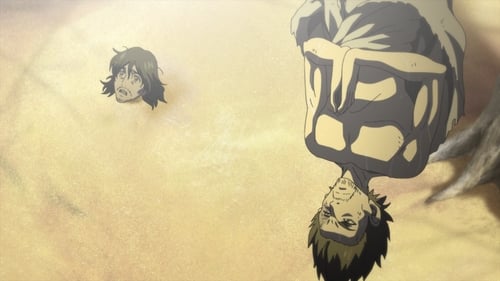
Siddhartha
Hace 2500 años, Siddharta nació en el Reino de Shakya de la India, pero renuncia a su posición como Príncipe heredero para poder descubrir el mundo por sí mismo. En esta nueva etapa de su viaje hacia la iluminación conocerá a nuevos compañeros, como Assaji, un extraño muchacho que puede predecir el futuro, o Depa, un monje con un solo ojo. Abrumado por todo el sufrimiento que le rodea, Siddharta no es consciente que mientras él continúa su viaje, el Reino de Kosala, liderado por el Príncipe Ruri, se prepara para llevar a cabo el ataque definitivo contra Shakya. Secuela de "Buda: El gran viaje" (2011).
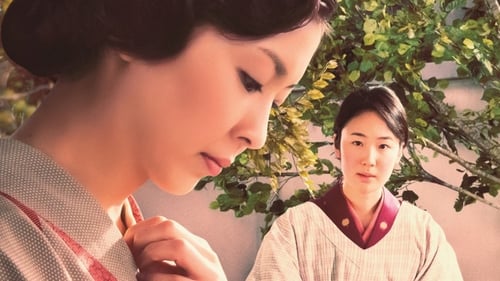
Masaharu Itakura
Ambientada en los años anteriores a la Segunda Guerra Mundial nos muestra la vida cotidiana de una pequeña y humilde familia que vive en Tokio, la capital japonesa. La historia comienza cuando Takeshi encuentra una colección de diarios que escribió su ya difunta tía Taki Nunomiya. A través de esos íntimos escritos, tanto el joven Takeshi como el espectador, van conociendo la realidad que vivieron sus familiares antes de que estallase la guerra. En 1920 Taki es una jovencita que trabaja como doncella para la familia de los Hirai. Masaki, el padre, es el empleado de una compañía de juguetes y vive junto a su mujer Tokiko y su hijo de cinco años. Un día Tokiko recibe la visita de un viejo amigo, lo que provoca una aventura extramatrimonial. Mientras todo eso ocurre, Taki lo observa en silencio.

Yasuo Moriuchi
In May 2003, the Japan Aerospace Exploration Agency (or JAXA) launched an unmanned spacecraft of their own development to retrieve samples from an asteroid. Seven long years later, Hayabusa achieved its goal and was the first of any kind of craft launched from Earth to safely return samples of this kind to home base. The story was one of such great national pride for Japan, and in the wake of the tsunami and resulting tragedies in Japan it’s strong nationalistic message became the subject of no less than three rival films. Yukihiko Tsutsumi’s high-profile effort, simply titled Hayabusa (2011) starred the incomparable Toshiyuki Nishida. Most recently, Welcome Home, Hayabusa (2012) was released to Japanese audiences. Slipping in between those two was Hayabusa: The Long Voyage Home, concentrating on the people on the ground who helped return the probe safely.

Ryunosuke Chagawa
The Tokyo Olympics are about to open, and Rynosuke Chagawa is excited to receive a new TV set to watch the upcoming events. His wife Hiromi is pregnant and he has built a second level on his shop to provide his adopted son Junnosuke with a private space to study for entrance to Tokyo University to set up a career with a major company. He dreams of sparing Junnosuke the struggles that he has faced as a writer. The family continues to rely upon Hiromi's income from her bar. Meanwhile a rival story, The Virus, by a new writer has appeared in the periodical that has been publishing his stories "Boy's Adventure Book" and he fears the new competition. Norifumi Suzuki also receives a new TV, but more of a deluxe model. Mutsuko Hoshino (Roku) is still the principal mechanic in the Suzuki family's auto repair shop, but she dresses up some mornings to go to a nearby street with the hope of a "chance" meeting with Dr...
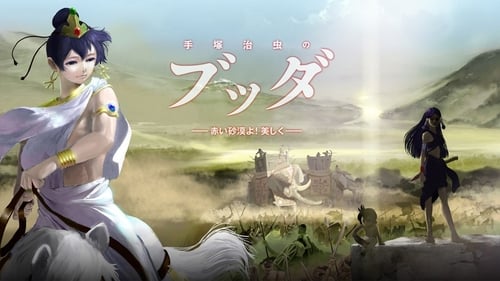
Buddha
En la antigua India, las vidas transcurren entre la sequía, el hambre, la guerra constante y las injusticias del estricto sistema de castas. Las vidas que se entrelazan de muchas almas infelices son reunidas por el nacimiento del jóven príncipe Siddhartha, que emprende un viaje espiritual, se hace Buda, "El Iluminado", e intenta causar un renacimiento espiritual de la gente en esta edad desesperada.
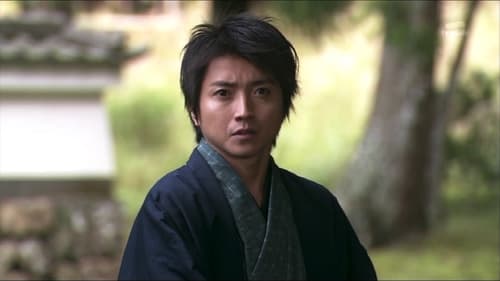
Masatsugu Nakae
This is the true story of the last officially recorded case of adauchi, when a young man avenged the death of his father by brutally killing the murderers in broad daylight. Samurai revenge killings, or adauchi, was considered a rightful and noble act of honor and virtue.But all that changed abruptly on February 7, 1873, when adauchi became prohibited as part of the Meiji Restoration’s goal to Westernize Japan.
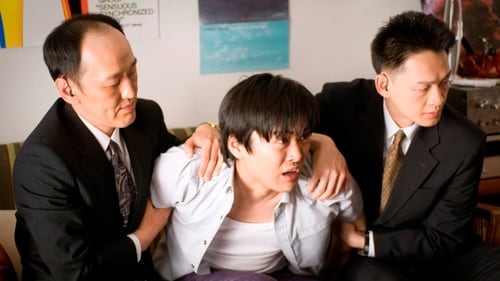
Shingo Morita
When easy-going Aoyagi meets an old friend for a fishing trip, he ends up drugged, framed for the Prime Minister's assassination, and on the run from corrupt cops. It's only the beginning of what quickly becomes the worst, weirdest day of his life. But he'll get by with a little help from his friends, who include a famous pop diva, a rockabilly deliveryman, a crippled old gangster, and the world's most cheerful serial killer.

Ryunosuke Chagawa
Would-be writer Ryunosuke Chagawa is still living across the street from Norifumi Suzuki and his auto repair shop, though now he shares his home with Junnosuke, an orphan he's taken under his wing at the urging of pretty Hiroi, who continues to manage a nearby tavern. Chagawa dreams of publishing a successful novel and settling down with Hiroi and Junnosuke, but his day job running the candy store keeps him busy, and Hiroi mistakes his tight schedule for a lack of interest in her. Hiroi has also embarked on a secret career as a burlesque dancer, which isn't doing much to improve her opinion of men. At the Suzuki household, seven-year-old Ippei isn't happy to be sharing the house with a guest, his distant cousin Mika who is the same age but far more demanding. Mutsuko, the apprentice female auto mechanic, is still staying with the Suzukis, and she's becomes the object of the affections of Takeo, a downbeat young man who is studying cooking.
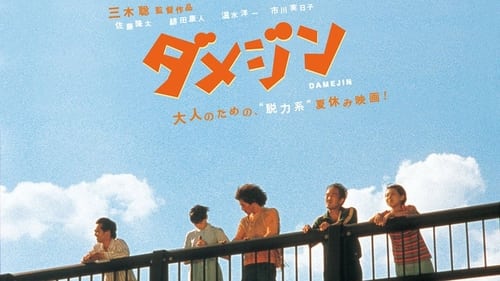
An off-beat comedy about 3 'damejin' (useless persons), who don't work and spend their lives doing nothing. They actually don't want to work. When they hear 'in India one can live without working' they take it seriously. They begin to raise the money to go to India by doing anything but working, such as ripping off stamps from others' letters to sell, robbery at the bank which itself went bankrupt, etc.
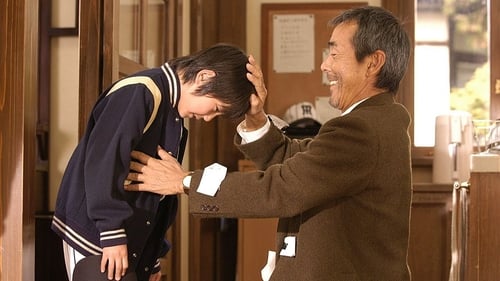
Root
This is the story between single mother housekeeper and mathematics professor,who has a brain damage.
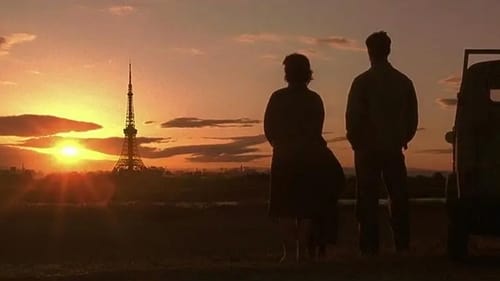
Ryunosuke Chagawa
Dejando su hogar de provincias, la adolescente Mutsuko llega a Tokyo en tren para trabajar en una importante compañía de automóviles, pero se encuentra con que es contratada en un pequeño taller regentado por Norifumi Suzuki. El temperamento irritable de Suzuki se mantiene más o menos controlado por los instintos maternales de su esposa, Tomoe, y su joven hijo Ippei crea un vínculo inmediato con Mutsuko como si fuera su hermana mayor. El taller Suzuki está prácticamente a la sombra de la Torre Tokyo según se va levantando sobre el horizonte durante su construcción en 1958.

Dvorak's Symphony No. 9, "From the New World" wafts through a hospice recreation room. Sitting at the grand piano is a young girl, Chiori, with a prodigious ability to play any piece of music after one hearing. Keisuke Kisaragi whose career was abruptly cut short when he jumped in front of a bullet fired by a crazed gunman. The nerves in one hand were severed but he saved the life of Chiori. The tragic incident takes the lives of Chiori's parents, however, and Keisuke becomes her guardian. Not long after their return to Japan, Keisuke discovers Chiori's musical gift.

Junichi
When her husband is hospitalized with tuberculosis, Chika has a series of three relationships: with a teacher in her hometown, with a student in Tokyo, and with an aging gangster.
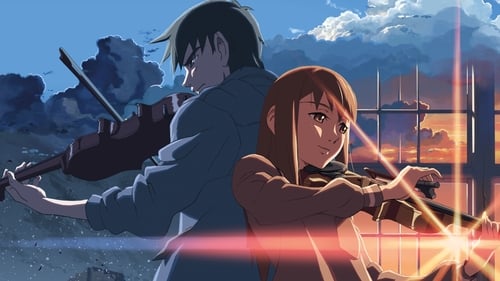
Hiroki Fujisawa (voice)
Durante la II Guerra Mundial Japón quedó dividida en dos partes. En el Aomori, controlado por las fuerzas de EE.UU. viven dos jóvenes, Hiroki y Takuya, siendo sus mayores intereses Sayuri, y una gigantesca, misteriosa torre visible en el horizonte de Hokkaido bajo el dominio de la Unión Soviética. Un día deciden construir su propio aeroplano y volar hasta la torre, pero antes de que puedan empezar Sayuri y Hiroki son transferidos a diferentes colegios en el Tokyo distante. Tres años después, Sayuri entra en un estado de coma profundo y ellos entienden que la única manera de ayudarla, y probablemente de incluso salvar el mundo, es cumplir la promesa de cuando eran chicos

Samon Shimada
Japón, siglo XIX. El declive de la casta guerrera de los Samurai y de los Shogun ha hecho mella en el pequeño feudo de Unasaka, situado en la costa del noroeste del país. El samurai Yaichiro Hazama se marcha a la lejana ciudad de Edo para hacerse cargo de un puesto muy importante de la organización del clan, mientras sus amigos samuráis, Munezo y Samon, vuelven al lugar en el que Munezo nació y creció. A pesar de su modesto sueldo consiguen vivir una vida placentera en la casa de la madre de Munezo junto con la hermana pequeña de éste y la hija de un vecino que es granjero, llamada Kie, que trabaja en la casa como empleada doméstica y espera poder conseguir marido. Durante los tres años siguientes fallece la madre de Munezo, Samon se casa con la hermana de Munezo, y Kie se casa con el hijo de una familia acomodada de mercaderes, los Iseya.

Crying Acting Coach (voice)
Hana y Alice pasan la gran mayoría de las horas juntas, son amigas inseparables. Hasta que un día se interesan en dos chicos que coinciden con ellas en el tren. Hana se obsesiona con uno de ellos, a tal punto que le sigue allá a donde va. En uno de estos seguimientos, el chico se golpea la cabeza y Hana decide convencerle de que sufre de amnesia, y de que ella era su novia. Hana contará con la ayuda de Alice para tramar su plan, pero no cuenta con que Alice también tiene sentimientos...
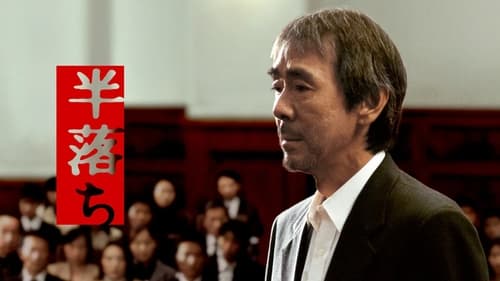
Keigo Fujibayashi
Half a Confession introduces itself as a thriller and abruptly changes gears, transforming into a tale of morality with deeper insights into its characters than we had anticipated. It begins when Soichiro Kaji (Terao), a retired detective, walks into police headquarters and confesses to the murder of his wife. We learn that the victim had prematurely developed Alzheimer's after the tragic death of their son, and in her suffering, had asked to die. The police chiefs would be far more content to take him at his word if it were not for a conspicuous hole in his story: 48-hour gap between the alleged murder and his confession. Fearing a public relations nightmare, they are eager to bury the incident and keep the press in the dark.
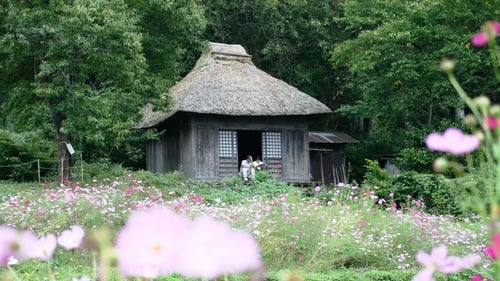
Dr. Nakamura
As the film begins, Takao (Akira Terao) and Michiko (Kanako Higuchi) have already pulled up their Tokyo roots and moved to a village that is Takao's ancestral home. They visit a thatched cottage that serves as a memorial shrine (amidado) for the village dead and chat with the attendant, the spry 96-year-old Oume (Tanie Kitabayashi). Together they admire the view -- from an inspiring distance. Oume, it turns out, is a kind of sage, whose thoughts and observations are a popular feature in a column in a local newsletter. Her amanuensis is a mute, sweetly smiling young woman named Sayuri (Manami Konishi), who is as devoted to Oume as Oume is to the souls of her beloved dead.
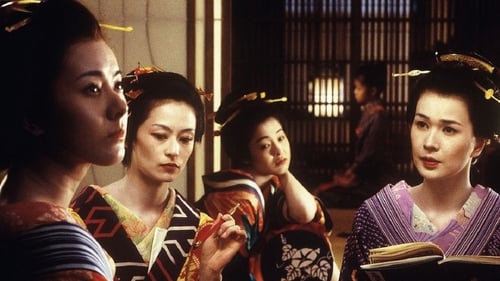
Fusanosuke
Ambientada en el siglo XIX, en un burdel japonés cerca de Tokio. El Mar que nos Mira es una historia de una geisha O-Shin y de un samurai de nombre Fusanosuke, quién tras discutir accidentalmente con un poderoso samurai, busca refugio en compañía de la joven. (FILMAFFINITY)

Uesugi Susumu
Mr. Takano, a company employee, announces plans to take an early retirement so he can return to his home town and spend his days fishing. Su-san and Hama-chan envy his decision, and Hama-chan conspires to visit Takano, even though he has no vacation time left.

Gonnojo Sakakibara
A group of travelers is stranded in a small country inn when the river floods during heavy rains. As the bad weather continues, tensions rise amongst the trapped travelers.
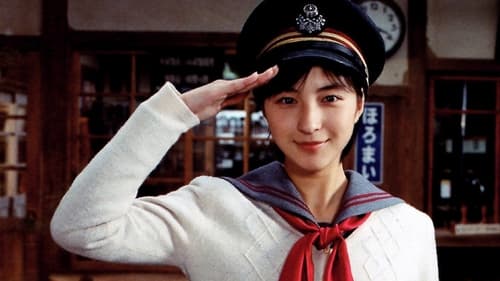
Hideo Sugiura
A railway stationmaster at a dying end-of-the-line village in Hokkaido is haunted by memories of his dead wife and daughter. When the railroad line is scheduled to be closed, he is offered a job at a hotel, but he is emotionally unable to part with his career as a railroader. His life takes a turn when he meets a young woman with an interest in trains who resembles his daughter.
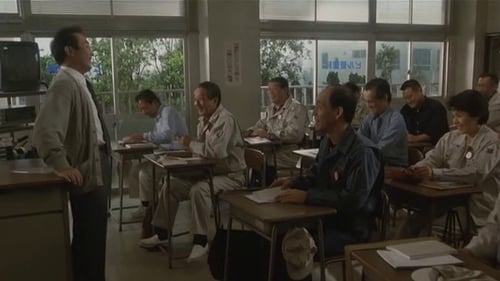
Yamamoto
A widow who has single-handedly raised her autistic son loses her job and begins attending a technical college to gain new qualifications. She meets others looking for a new start in life, including a former salaryman with whom she begins a furtive romance...
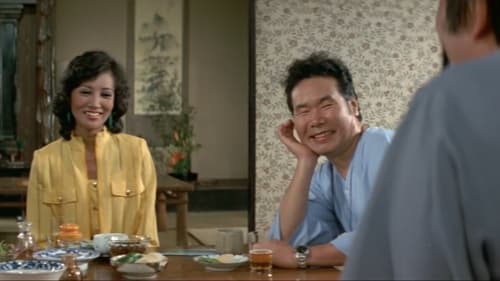
Mitsuo
Carrying a bag full of samples, Mitsuo makes rounds to shoe stores in remote cities. While staying at budget hotels, his thoughts turn to Tora-san.
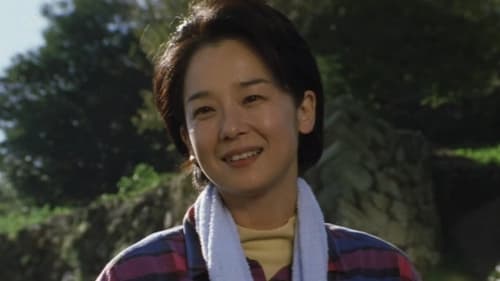
A young man fails his company entrance exams and leaves home to work at a run-down cinema in Tokushima, whose owner lives to bring entertaining films to the residents of his small town.
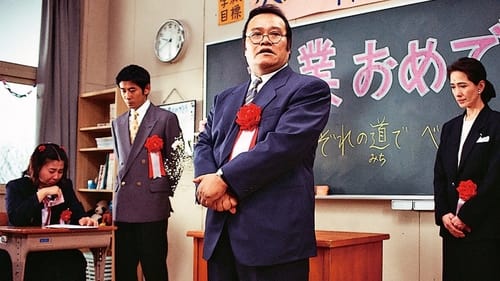
The story follows the teacher and students of the Ryubetsu Handicapped High School.
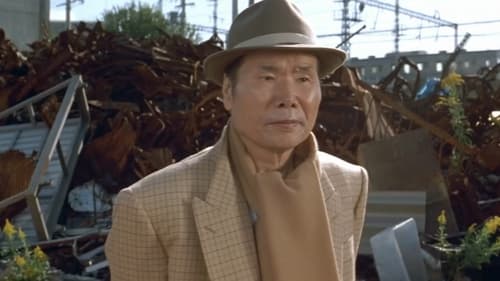
Mitsuo
Tora-san works hard to bring together his nephew, Mitsuo, and Mitsuo’s girlfriend who is engaged to someone else.
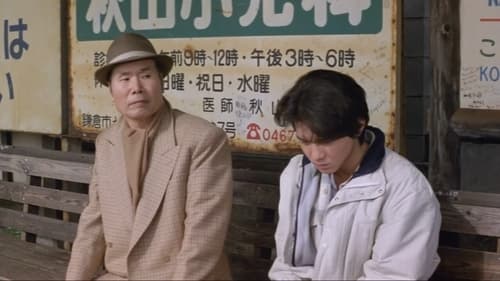
Mitsuo
Mitsuo, unhappy in his new job as a shoe salesman, is invited to a festival and is introduced to a friend’s sister. Tora-san meanwhile helps an injured housewife on her yearly vacation.

Shuntaro Kitagawa

Mitsuo
After failing to find a job, Mitsuo becomes a fisherman on a small island, and develops a crush on a young nurse there. Tora-san, dispatched to bring Mitsuo back home, himself falls in love with an attractive but troubled woman visiting her father.
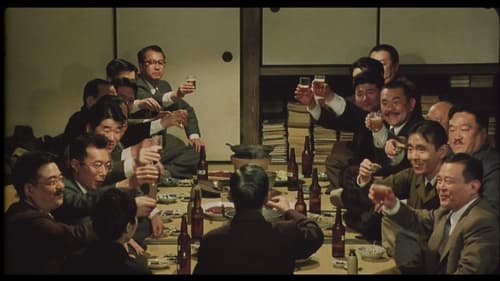
Takayama's son
Tokio, 1943. El profesor Hyakken Uchida abandona su cátedra para dedicarse por completo a su carrera como escritor. Los desastres de la Segunda Guerra Mundial (1939-1945) hacen que pierda su casa y viva con su mujer en una barraca. Pero sus ex alumnos deciden construirle un nuevo hogar, al que se trasladará con su esposa. También se comprometen a celebrar cada cumpleaños del venerado maestro. Durante esas fiestas, juegan como niños y le preguntan al profesor: "Mahda-kai" ("¿Estás listo para irte al otro mundo?"), a lo que él responde: "Madadayo" ("No, todavía no"). (FILMAFFINITY)

Tora-san Makes Excuses is a 1992 Japanese comedy film directed by Yoji Yamada. It stars Kiyoshi Atsumi as Torajirō Kuruma (Tora-san), and Kumiko Goto as his love interest or "Madonna".

Mitsuo
When Izumi can't stand seeing her mother flirt with other men, she leaves home. She sends a letter to Mitsuo and Mitsuo goes looking for her. But Izumi unexpectedly meets Tora-san.
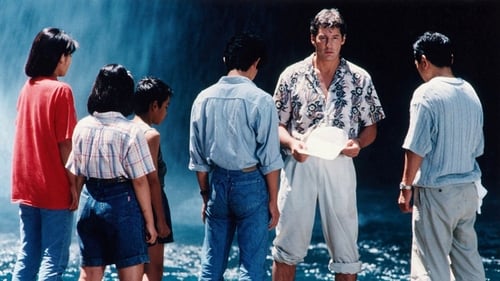
Tateo
Profunda reflexión sobre el holocausto nuclear de Nagasaki desde el punto de vista de una superviviente y sus cuatro nietos. Entre sonrisas y lágrimas, la abuela recuerda la historia de su familia y de la sociedad japonesa de su tiempo, tratando de llegar a comprender mejor el pasado y el presente.
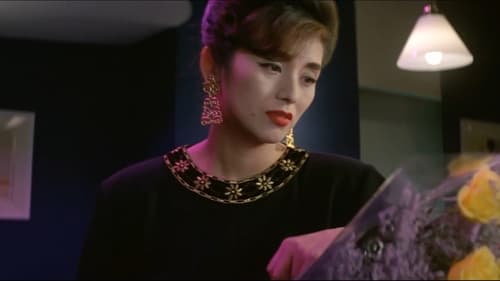
Mitsuo
Mitsuo goes to Nagoya to visit Izumi, whose father left Izumi’s sad, bar hostess mother for another woman, so together they decide to confront him in Oita. Meanwhile, Izumi’s mother befriends Tora-san and together they travel to Oita to meet them, with Tora-san quickly falling for her en route.
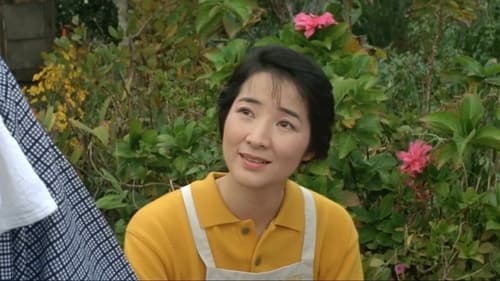
Mitsuo
Tora-san's nephew Mitsuo is exchanging letters with Izumi, a former classmate whose parents divorced and took her out of Tokyo.
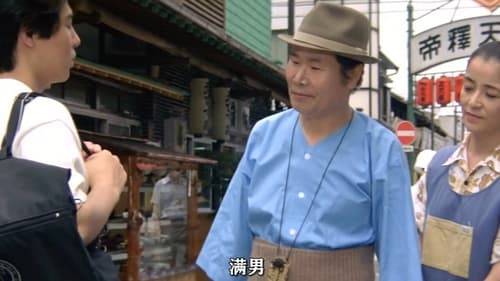
Mitsuo
During his wandering throughout Japan, Tora-san meets a suicidal man. He travels with the man to Vienna, but winds up homesick for Japan.

Mitsuo
In his travels through Japan, Tora-san meets and falls in love with a female doctor, however he is afraid of committing to a relationship.

Makoto Tano
Set on a quiet ranch in Hokkaido. One day, a colt is born from a legendary bloodline. It is given the name Oracion or "prayer". When Oracion is grown, a factory owner buys the horse. Will he be the key to solving the man's problems? Based on the novel by Teru Miyamoto.
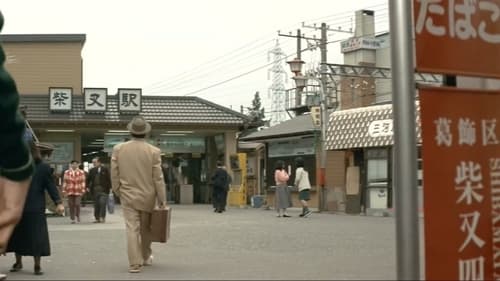
Mitsuo
A playboy-gambler friend of Tora-san’s dies and, abandoned by his mother, his little boy suddenly turns up in Shibamata. Searching for the boy’s mother, Tora-san meets a cosmetics saleslady and the three become a surrogate family, with Tora-san as “daddy”.
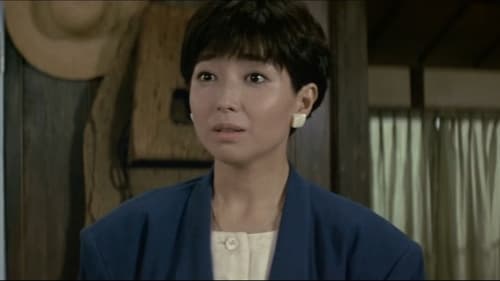
Mitsuo
When his travels take him to rural Hokkaido, Tora-san helps a cantankerous old veterinarian (Mifune) in his relationships with his estranged daughter, and a woman in whom he is secretly interested.

Mitsuo
During his travels, Tora-san comes across a traditional theater he used to visit, and discovers that one of his old friends has died. Tora-san and his family help the friend's daughter, who becomes romantically involved with an aspiring artist.
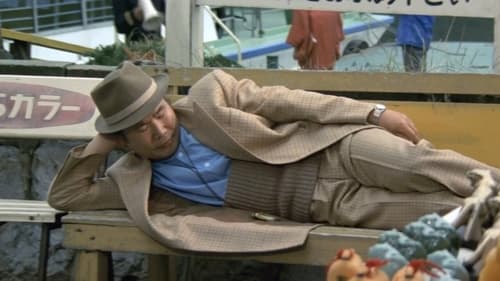
Mistuo
Tora-san's family's neighbor, Akemi, who had been married in Marriage Counselor Tora-san (1984), runs away from her husband, who is only interested in work. Tora-san follows her to Shikinejima, and attempts to bring her back to her home. In doing so he encounters a school-reunion group who are traveling to meet their elementary school teacher, which is a reference to the film Twenty-Four Eyes by Keisuke Kinoshita. Tora-san joins them and falls in love with the teacher.

Mitsuo
In Nagasaki, Tora-san and an acquaintance help an old woman who has fallen and injured herself. She invites them to her home where the three share a night of eating and drinking. The old woman's health deteriorates and she dies. At her funeral, Tora-san falls in love with the old woman's daughter, but winds up acting as a go-between for her and a young law student.
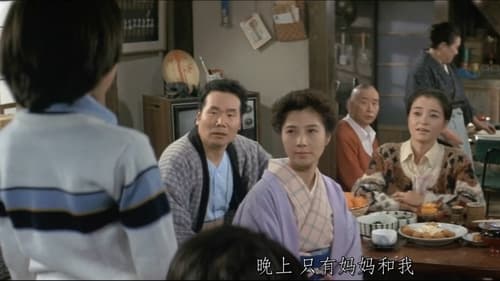
Mitsuo
Tora-san spends several days at the home of a hard-working salaryman ("salaried worker"), who abruptly disappears. When the man's wife asks Tora-san to help find him, he falls in love with her, and secretly hopes the husband will not be found.
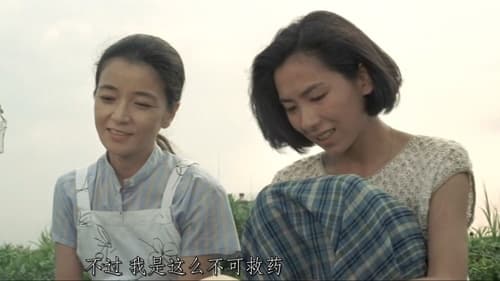
Mitsuo
In Shibamata, Tokyo, Tora-san's family prepares for a wedding. Meanwhile, the traveling Tora-san meets an old acqaintance in Iwate Province. Tora-san refuses to drink with him, afraid that the acquaintance, now settled and married, will again become attracted to Tora-san's wandering existence. Tora-san becomes attracted to a female barber, but must break off their relationship so that she too can live a secure life. She instead gets into an abusive relationship with a motorcyclist.
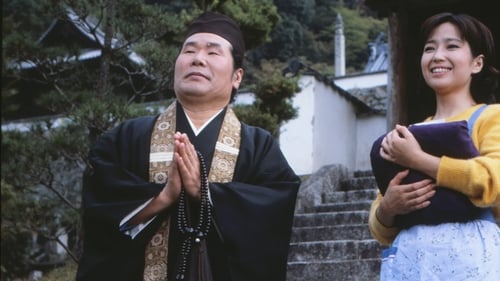
Mitsuo
Tora-san visits brother-in-law Hiroshi's hometown to attend a memorial service for his late father. When the local temple priest becomes intoxicated, Tora-san wearing the priest's robe delivers the memorial speech, much to his family's surprise. Thinking he's found his true calling, Tora-san decides to join the order, and falls for the priest's divorced daughter.

Mitsuo
Tora-san returns to his family home to learn that his brother-in-law cannot go to Mitsuo's (Tora-san's nephew) athletic event. Tora-san volunteers to take his place, but gets into an argument with his brother-in-law's boss and returns to the road. He meets a young woman in Niigata who, unbeknownst to him, is a popular enka singer.

Mistuo
Tora-san gets into an argument with his uncle and sets out on the road again. In Kyushu he meets a young woman named Keiko and the shy zoologist Saburō, and attempts to play matchmaker between the two when they all return to Tokyo.
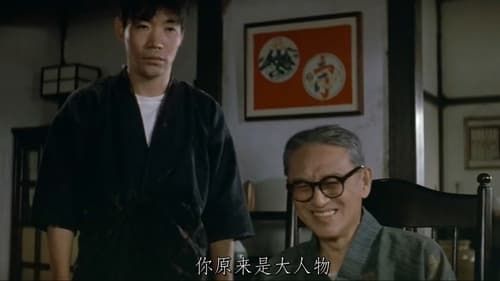
Mitsuo
During his travels, Tora-san gets drunk with an old man in Kyoto. Though Tora-san never fully comprehends his importance, the old man is a Living National Treasure ceramist. At his home, Tora-san makes a good impression on the old man's maid, who apparently falls in love with Tora-san.

Mitsuo
Tora-san returns to his family's home to attend an elementary school class reunion. After he embarrasses himself by getting drunk and insulting all his ex-classmates, he resumes his travels. In Kyushu he meets an outspoken 18-year-old girl who becomes enamored of Tora-san and follows him around. One of Tora-san's old friends is terminally ill and makes Tora-san promise him to marry his wife once he is gone.
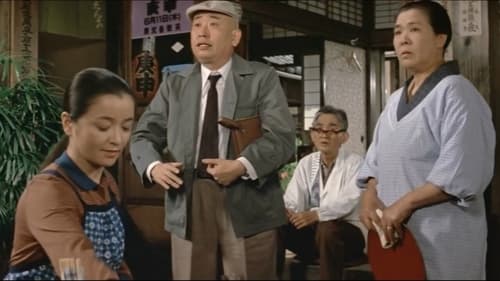
Mitsuo
When his travels bring him to Osaka, Tora-san falls in love with a local geisha. He helps her to track down her estranged brother, and informs his family that he plans to marry her. His plans are foiled when the geisha informs Tora-san that she is engaged.

Writer
Un extraño busca trabajo en la granja donde vive una viuda con su hijo pequeño. La atractiva madre trabaja duro y aprecia que su nuevo empleado sea de la misma condición. A medida que pasa el tiempo se empiezan a crear lazos afectivos entre ellos.

Takeshi Kazami
Un extraño busca trabajo en la granja donde vive una viuda con su hijo pequeño. La atractiva madre trabaja duro y aprecia que su nuevo empleado sea de la misma condición. A medida que pasa el tiempo se empiezan a crear lazos afectivos entre ellos.














































